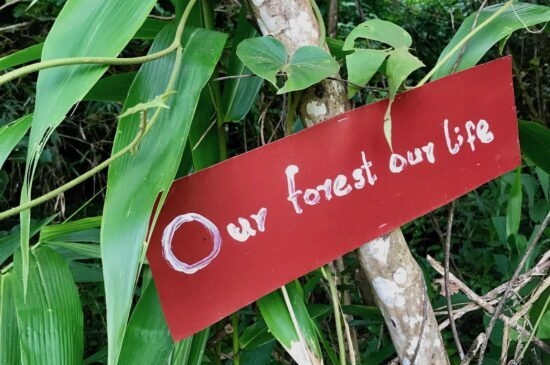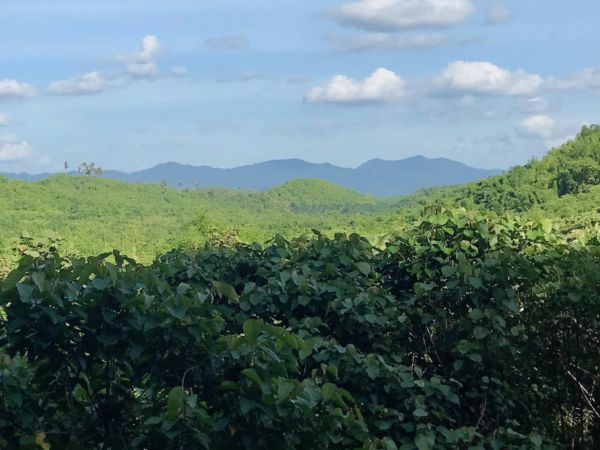Independent Panel Reports On WWF And Makes Case For Accountability

An independent panel of experts has reviewed some of World Wide Fund for Nature’s conservation projects alleged to have contributed to human rights abuses. A key recommendation from the review is to establish an effective accountability mechanism to strengthen compliance and ensure communities have redress for project harms. WWF should heed this advice. Others should heed this lesson.
Programs designed to do good can still cause harm. The World Wide Fund for Nature (WWF) operates to conserve nature and reduce threats to biodiversity, a critical mission. And yet, reports reveal that certain conservation projects have contributed to human rights abuses against individuals living in or near protected areas in Africa and Asia. Advocates raised concerns to WWF repeatedly and demanded accountability for harms imposed on communities, including incidents of torture and beatings inflicted by “ecoguards” tasked with monitoring protected areas, and failing to respect the rights of Indigenous Peoples.
In 2019, WWF commissioned an independent panel of experts to perform a review of WWF practices that may have contributed to harm connected to projects in Cameroon, the Central African Republic, the Democratic Republic of Congo, the Republic of Congo, and Nepal. The panel issued its report in November 2020, recommending several actions that WWF could take to prevent future harm and respect human rights in the course of its activities. One key recommendation advised WWF to operationalize and ensure the effectiveness of its Ombudsperson office, which is envisioned to serve as WWF’s independent accountability mechanism. The panel recognized that the effectiveness of the Ombudsperson office will depend on whether it has sufficient authority and resources, and it urged WWF to engage and respond to the advice and findings of the Ombudsperson once it is operationalized.
By providing a forum for communities to raise environmental and social concerns about projects, an accountability mechanism is a critical tool to ensure that investors, funders, and project implementers are aware of their impacts. Moreover, accountability mechanisms offer processes for investigating non-compliance and for mediating disputes, each with the potential to facilitate remedy where shortcomings in oversight manifest in harm. We have seen the need for accountability mechanisms in our work in Myanmar, where a conservation project funded by the United Nations Development Programme (UNDP) fell short of its obligation to respect affected communities’ rights to consultation and Free, Prior, and Informed Consent, and risked infringing upon communities’ land rights. By engaging with the UNDP’s accountability mechanism to advocate for their interests and open a dialogue, the communities were able to secure a temporary suspension of project activities and propose an alternative Indigenous-led conservation plan, called Landscape of Life.
Status Of WWF’s Accountability Mechanism
To date, the position of WWF’s Ombudsperson remains vacant, and according to the panel’s independent report, the mandate and scope of the Ombudsperson’s role are “evolving” and “still not clear” even amongst senior levels at WWF. Nonetheless, the panel did ascertain some of WWF’s commitments for the office:
- Independence: The Ombudsperson will be independent from management and will report to WWF’s International Board. According to the panel’s report, “[i]t is expected that once the Ombudsperson is appointed, he or she will have the licence to evolve the scope and remit of the Office.”
- Accessibility: The Ombudsperson will address complaints from individuals affected by WWF programs.
- Effectiveness: The Ombudsperson will have the power to monitor and review compliance with projects, which the panel views as a “key feature” of WWF’s environmental and social safeguards framework.
- Professionalism: The Ombudsperson office “is expected to have three full-time employees: an Ombudsperson, a Dispute and Compliance Specialist, and a Registrar.”
Our Recommendations For WWF
Based on our experience advising existing accountability mechanisms and contributing to the design of new ones, Accountability Counsel makes the following recommendations to WWF:
- Hire an Ombudsperson who has demonstrated independence and a commitment to communities.
- Commit to best practice within the office of the Ombudsperson by: (1) trusting the new Ombudsperson to design the procedures for the office; (2) holding a public consultation on those procedures; (3) ensuring that existing commitments for the office’s independence are enshrined during implementation; and (4) committing publicly that the Ombudsperson office will meet the effectiveness criteria for grievance mechanisms articulated by Principle 31 of the UN Guiding Principles on Business and Human Rights.
- Institute and educate WWF staff globally on policies that require them to respect and respond to the findings and recommendations of the Ombudsperson, with the understanding that the Ombudsperson’s role is fundamental to WWF’s success.
- Commit to providing remedy and redress for people who have been negatively affected by WWF projects, including findings that result from the Ombudsperson process. This can be done by designing processes to effectuate remedy, including the establishment of a remedy fund.
- Provide sufficient resources to the Ombudsperson office to ensure it can monitor and review projects effectively and maintain its independence.
How WWF’s Experience Provides A Lesson For Others
WWF’s experience is not unique. Any investor, financier, or implementer who does not have an independent channel to hear directly from project-affected people risks not knowing of or inadequately addressing harms. An accountability mechanism can lead to more sustainable and successful projects and help ensure the protection of communities’ rights. WWF is beginning to heed this lesson now. Others should too.
See our advice for impact investors considering how to create accountability mechanisms here.

